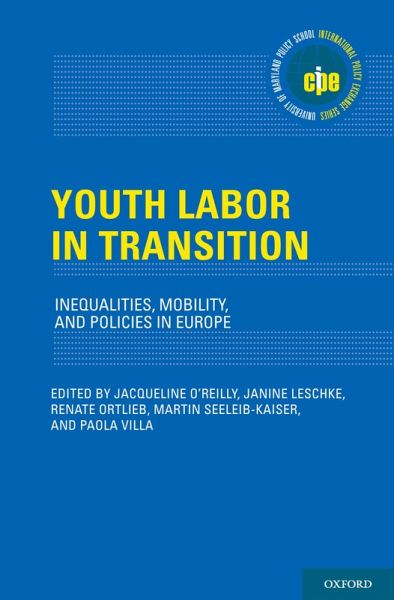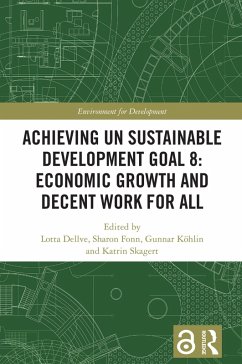
Youth Labor in Transition (eBook, ePUB)
Inequalities, Mobility, and Policies in Europe
Redaktion: O'Reilly, Jacqueline; Villa, Paola; Seeleib-Kaiser, Martin; Ortlieb, Renate; Leschke, Janine
Versandkostenfrei!
Sofort per Download lieferbar
32,95 €
inkl. MwSt.
Weitere Ausgaben:

PAYBACK Punkte
16 °P sammeln!
Exacerbated by the Great Recession, youth transitions to employment and adulthood have become increasingly protracted, precarious, and differentiated by gender, ethnicity, and socioeconomic status. Youth Labor in Transition examines young people's integration into employment, alongside the decisions and consequences of migrating to find work and later returning home. The authors identify key policy challenges for the future related to NEETS, overeducation, self-employment, and ethnic differences in outcomes. This illustrates the need to encompass a wider understanding of youth employment and j...
Exacerbated by the Great Recession, youth transitions to employment and adulthood have become increasingly protracted, precarious, and differentiated by gender, ethnicity, and socioeconomic status. Youth Labor in Transition examines young people's integration into employment, alongside the decisions and consequences of migrating to find work and later returning home. The authors identify key policy challenges for the future related to NEETS, overeducation, self-employment, and ethnic differences in outcomes. This illustrates the need to encompass a wider understanding of youth employment and job insecurity by including an analysis of economic production and how it relates to social reproduction of labor if policy intervention is to be effective. The mapping and extensive analysis in this book are the result of a 3¿-year, European Union-funded research project (Strategic Transitions for Youth Labour in Europe, or STYLE; http://www.style-research.eu) coordinated by Jacqueline O'Reilly. With an overall budget of just under 5 million euros and involving 25 research partners; an international advisory network and local advisory boards of employers, unions, and policymakers; and non-governmental organizations from more than 20 European countries, STYLE is one of the largest European Commission-funded research projects to exist on this topic. Consequently, this book will appeal to an array of audiences, including academic and policy researchers in sociology, political science, economics, management studies, and more particular labor market and social policy; policy communities; and bachelor's- and master's-level students in courses on European studies or any of the aforementioned subject areas.
Dieser Download kann aus rechtlichen Gründen nur mit Rechnungsadresse in A, B, BG, CY, CZ, D, DK, EW, E, FIN, F, GR, HR, H, IRL, I, LT, L, LR, M, NL, PL, P, R, S, SLO, SK ausgeliefert werden.













